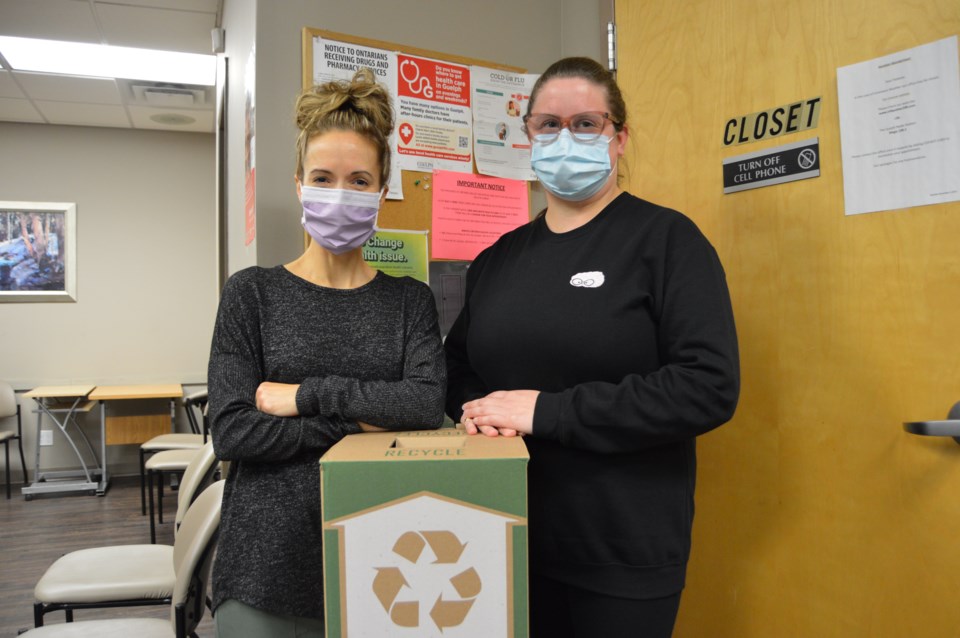What do you do with a used mask after you leave the doctor’s clinic? You could throw it in the garbage. At a couple of Guelph Family Health Team clinics used masks can be recycled.
Guelph FHT started a green council in August and have since implemented five green initiatives for their clinics to use. Recycling masks is one of them.
“And one of the reasons why we've chosen to focus on that, in particular … we're using so many masks at this point in time compared to previous care delivery processes. But there was already work started there,” said Lee Kapuscinski, manager of quality improvement and evaluation at the Guelph FHT.
The Dawson Road Family Medical Clinic implemented mask recycling earlier in the pandemic and now other clinics like Baker Street Medical have followed suit.
Baker Street Medical implemented its mask recycling earlier this month using TerraCycle, a waste management company. TerraCycle ships a cardboard recycle box to the facility, it gets filled with masks and the clinic ships it back to get recycled.
“So when there was a mask mandate, we didn't go through them as often because patients came in with their own medical masks. And they would leave with them because they had to wear them everywhere they went,” said Molly Cressman, office manager at Baker Street Medical.
“Right now we're definitely going through them faster again, because patients will come in and they'll require a mask at check-in,” she said.
She noticed the garbage at the clinic was filling up with masks, now the masks are being recycled.
There is a cost associated with it, mostly the shipping of the box.
“So that might be a barrier. I can't speak to other clinics. But for us, it was kind of a no-brainer. When I just broke down the costs and benefits of recycling and the amounts as a clinic with six physicians and five allied health workers, it's busy, there's a lot of masks,” said Cressman.
“And it's raising awareness too, I'm sure a lot of our patients weren't aware that it was even possible to recycle.”
It’s little changes like mask recycling that can make a difference in the office, she said.
“So that's exciting just to see that people are interested in learning more about the link between climate change and health care and what we can do locally to raise awareness and create some positive changes,” Cressman said.
The other initiatives the green council, both Kapuscinski and Cressman are part of, are reducing exam table paper use, adopting non-aerosol inhalers, and rechargeable batteries for blood-pressure machines.
Part of the green initiatives is the education component and explaining to patients why they are changing things in the clinic to help the environment, said Kapuscinski.
“I think it's been refreshing for our team too. It's a nice positive focus in a really tough time. And I actually wonder if that's again, another reason why we've had so much success around it is because of that positivity,” she said.



